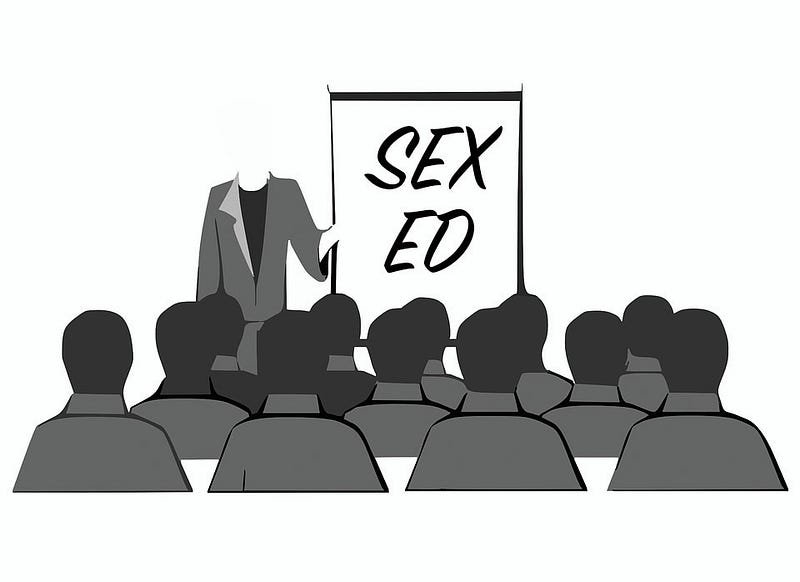
“Don’t have sex. Because you will get pregnant. And die.” The infamous words of Coach Carr in Mean Girls (2004). This absolutely iconic scene that was part of one of the most influential films of our millennia was a total satire of sexual education in this country. But there is something about the scene that hits the nail right on the head. Sex-ed in this country is far from comprehensive and in no way standardized across educational institutions. This means that students have little or no control over the influx of information that they receive about a topic that can greatly affect their lives once they “flee the nest”.
Sex-ed is a topic that has long been stigmatized in this country. Students come into college with radically different levels of understanding of sexual health, largely due to the opinions of their high school administrations or the choices of their parents. Some are told the best way to engage in sexual activity is to avoid it completely.
For others, the issue is only addressed with one of those weird VHS tapes that are shown during an assembly. But there is so much more to sex-ed than the choice of whether or not to have sex in the first place. Pregnancy, STDs, or birth control are all medical issues that fall under the umbrella of sexual health. These can have serious consequences on the long-term health of an individual, and it’s critical that everyone is properly educated.
The reality is that sex is a big part of most young adults’ lives. Even when choosing to remain celibate for personal or religious reasons, individuals will still encounter the topic of sexual health throughout their time in college. Teaching sex can — and should — be likened to educating high school students on the dangers of binge drinking and drug use. Individuals are still able to choose whether or not to engage in these activities, but they will instead be able to do so with all of the necessary information to make a safe choice. However, conservative ideologies about sex and sexuality mean that the topic of sex is in an entirely different stratosphere.
Here’s the gag — the level of sexual education that a person has coming into college has little or no effect on whether or not they choose to have sex. Stifling this information from young adults out of fear that it will only encourage “deviant” behavior can be detrimental to the long-term physical and mental health of students. Being well-informed about the various methods of contraception doesn’t cause someone who is dedicated to celibacy quake in their beliefs. It simply means that if they choose to engage in sexual activity, they will do so in the safest and cleanest way possible.
Do you feel as though you were completely clueless coming into freshman year about sex? Feel like you still are? It’s not too late. You can still be empowered to learn about your body and sexuality. There’s such a wealth of information available here — from the Health Center, to the Counseling Center, to the good old internet (Wikipedia IS a reliable source). Educating yourself is never a bad thing to do. Even if it only reaffirms your existing beliefs or practices, at least you’ll feel more secure in your understanding. Or maybe this information will lead you to make a more informed choice in the future.
Look, I’m not trying to put myself out of a job with this whole sex column thing. I greatly enjoy the Carrie Bradshaw-esque aesthetic of writing this every week (even though I am in no way, shape, or form similar to Carrie — I’m much more of a Charlotte). Regardless of my inner monologue, we come to college to have control over our education. Especially at a place like Hamilton, where the open curriculum encourages intellectual exploration and discovery. Doing this in the classroom, but not about your own health is entirely counter-intuitive. Maybe we can start having more honest conversations about sex and sexuality that lead everyone to make healthier choices that are better for them when they’re ready.

















